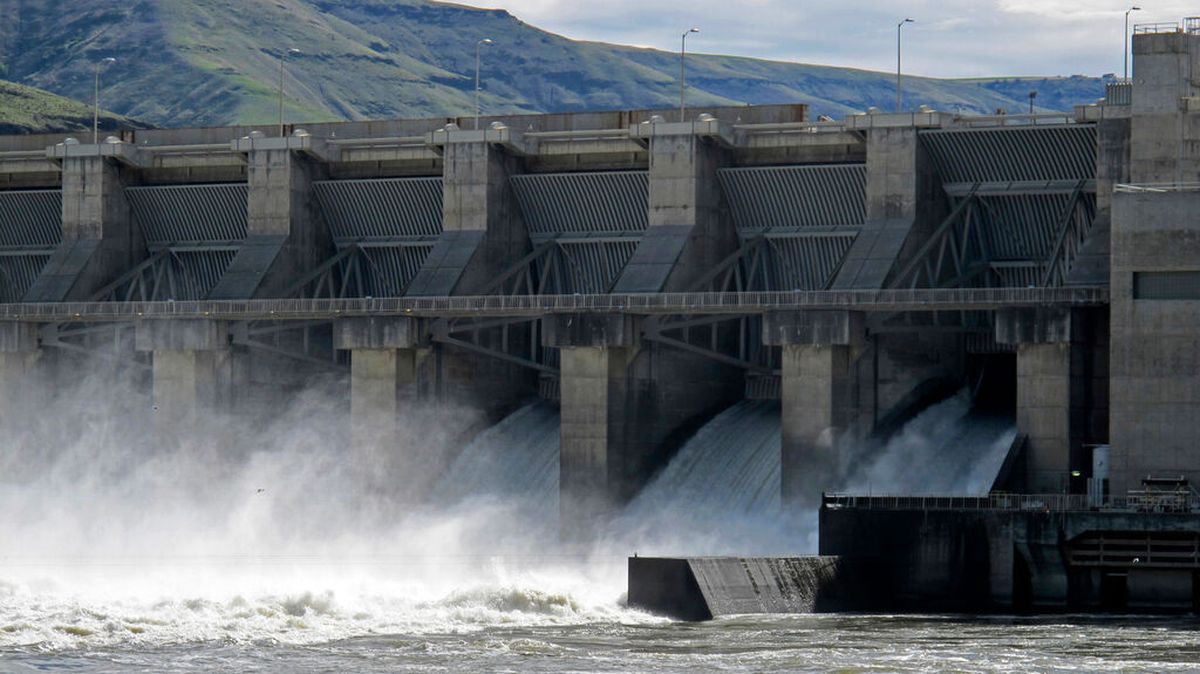Idaho Rep. Mike Simpson releases plan calling for breaching of Snake River dams after 2030

An Idaho Republican congressman has released a $33 billion plan to breach four dams on the lower Snake River, replace the lost hydroelectric energy with other sources and ensure irrigation and livestock protection for agriculture industries affected by the breaches.
The plan revealed Saturday night by Rep. Mike Simpson was praised by conservation groups concerned with the migration of salmon from the Pacific Ocean but is unlikely to convince his conservative congressional colleagues in the region, who argue that the dams provide a clean source of reliable energy and support the shipping of goods to the coast.
Simpson unveiled the plan in a video posted to his website Saturday evening.
“The current system is clearly not working,” said Simpson in the video, noting the federal government spent billions in salmon recovery efforts that he said have not resulted in improved fish runs inland. “So we are asking some very difficult ‘What if?’ questions.”
The funding for the plan should be included in any stimulus or infrastructure package passed by Congress and requested by the Biden administration. It is likely to face opposition from Rep. Russ Fulcher, who represents North Idaho, and Reps. Cathy McMorris Rodgers and Dan Newhouse of Washington, who released a joint statement last week critical of any effort to remove the dams that were built beginning in the 1960s.
“These dams are the beating heart of Eastern Washington and provide the entire Pacific Northwest with clean, renewable, reliable, and affordable energy,” McMorris Rodgers said in a statement released Friday, before the details of Simpson’s plan became public. “Spending more than $33 billion to breach them – with no guarantee that doing so will restore salmon populations – is a drastic, fiscally irresponsible leap to take.”
The channels created by the dams facilitate passage of Palouse-grown grain to shippers on the Pacific coast. The Inland Northwest’s Republican delegation has questioned the need for breaching, especially after a report released in February 2020 by the U.S. Army Corps of Engineers, the Bureau of Reclamation and the Bonneville Power Administration instead called for changes in dam spill rates to allow passage of migratory fish.
Conservation and tribal groups have noted court-ordered plans to rethink the dams and their effect on fish populations have not had the intended effect in the past. Simpson said that action was needed to avoid the extinction of Idaho salmon in the coming generations.
“We’ve spent decades making minor improvements and adjustments that simply haven’t worked, and what we really need is serious funding and a major overhaul,” said Liz Hamilton, executive director of the Northwest Sportfishing Industry Association, in a statement Sunday.
“Healthy populations of wild salmon and steelhead are essential for Northwest Tribes, local economies, and the region’s way of life – and they’re running out of time,” said Collin O’Mara, president and CEO of the National Wildlife Federation, in a statement. “Congressman Mike Simpson has put forward a comprehensive, visionary framework that would not only restore Northwest salmon, but modernize essential energy and infrastructure in Idaho, Washington, and Oregon, diversify local economies and strengthen communities – all of which will create tens of thousands of good jobs.”
The plan calls for the removal of the Lower Granite Dam near Colfax in 2030, with removal of the three other dams (Ice Harbor, Little Goose and Lower Monumental) to follow in 2031.
Before that can take place, officials must ensure a viable power supply to replace the energy lost by the breaching.